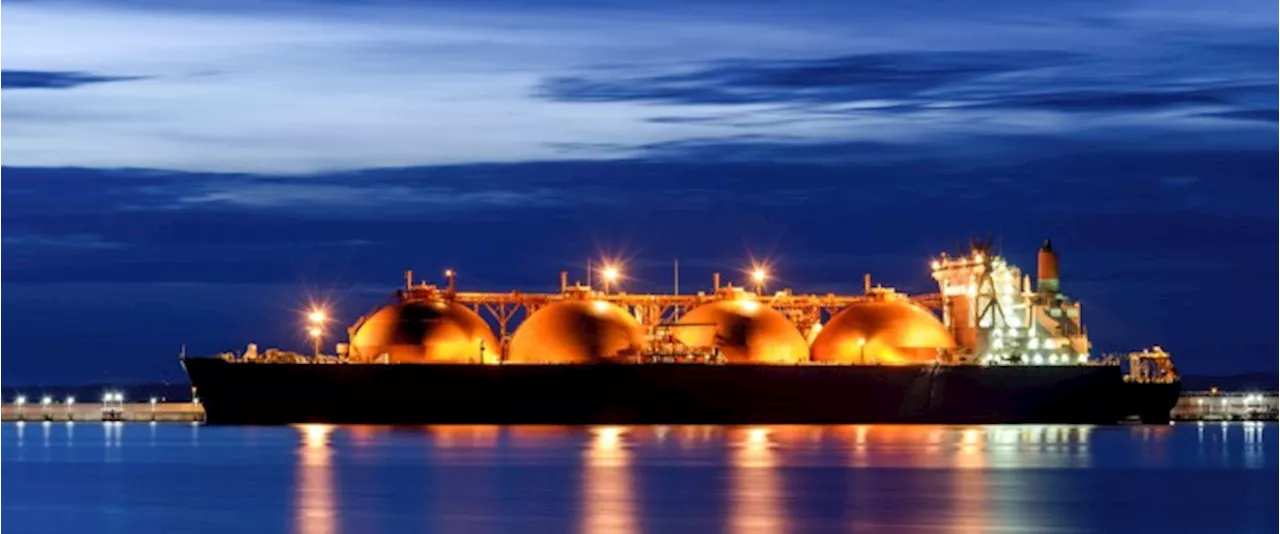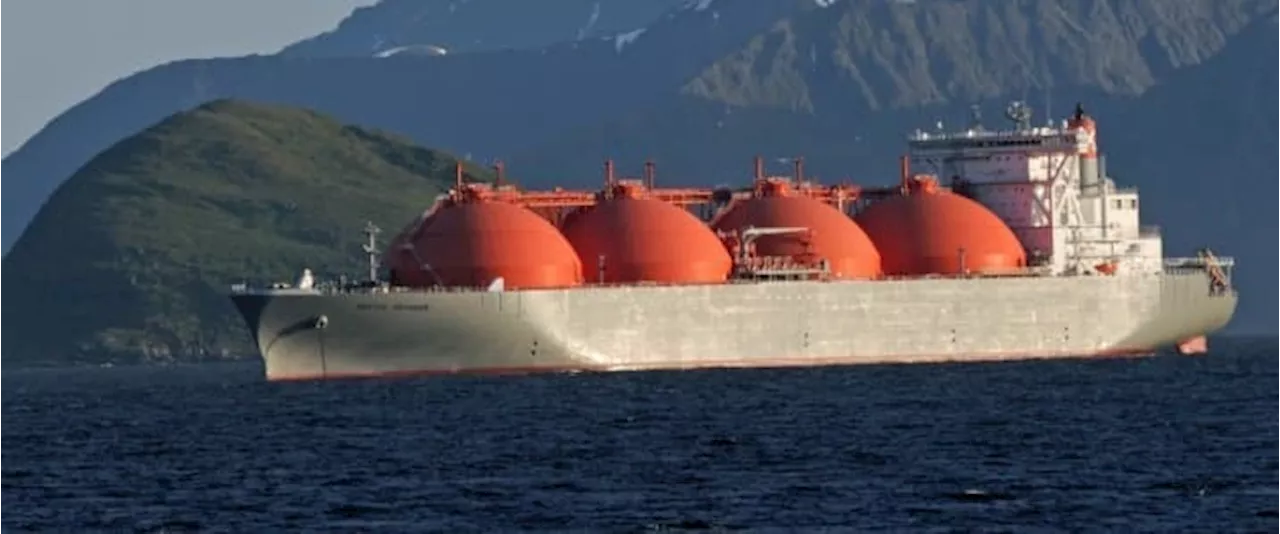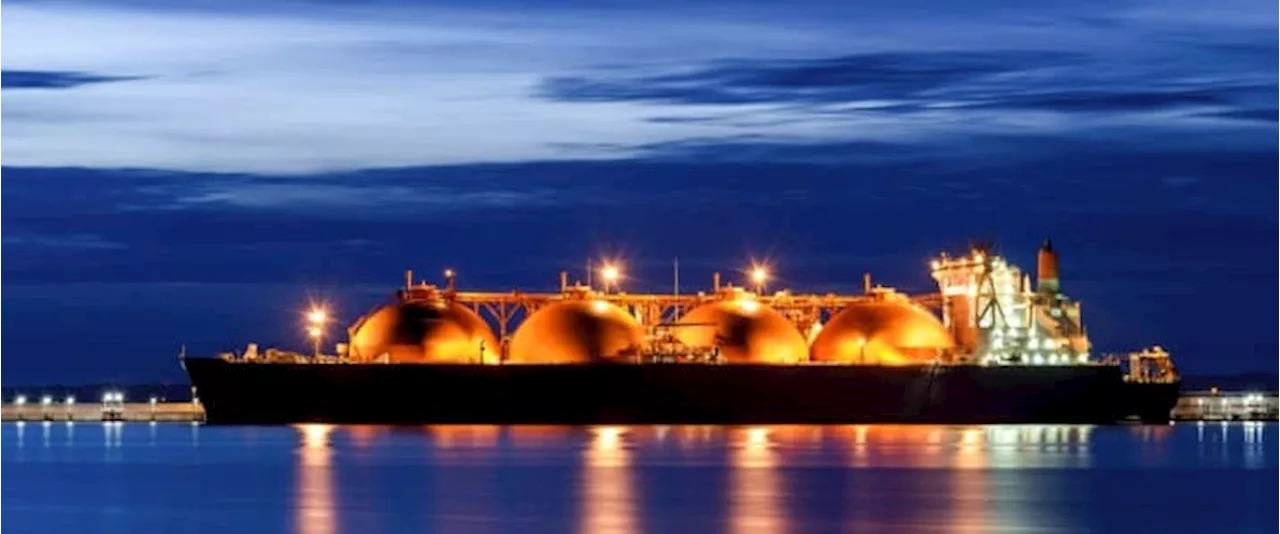Mitsui, Japan's trading giant, is considering backing a $44 billion LNG export project in Alaska amid rising energy trade discussions between the U.S. and Japan.
Japan ese trading giant Mitsui , which has investments in LNG projects globally, could consider supporting a planned $44-billion LNG export project in Alaska , Mitsui ’s chief financial officer Tetsuya Shigeta told Reuters on Monday. The trading house hasn’t made any decisions on the project yet, the executive added. Shigeta also hopes that an upcoming meeting between U.S.
the largest LNG buyer in Japan, plans to boost purchases from the United States to diversify its supply portfolio, a top company executive told Reuters last month. Japan is ready to explore possible backing of the Alaska LNG project and other commitments to buy more U.S. LNG if asked, the officials told Reuters.
LNG Alaska Japan Export Investment Energy Tariffs U.S.-Japan Relations Pipeline
United Kingdom Latest News, United Kingdom Headlines
Similar News:You can also read news stories similar to this one that we have collected from other news sources.
 Japan May Back Alaska LNG Project to Avoid Trump TariffsJapan is considering backing a $44 billion gas pipeline and LNG export project in Alaska to avoid President Trump's tariffs on countries that don't buy more U.S. energy. Japan, the world's second-largest LNG importer, is exploring possible commitments to buy more U.S. LNG. President Trump may raise the Alaska LNG project at a meeting with Japanese Prime Minister Shigeru Ishiba.
Japan May Back Alaska LNG Project to Avoid Trump TariffsJapan is considering backing a $44 billion gas pipeline and LNG export project in Alaska to avoid President Trump's tariffs on countries that don't buy more U.S. energy. Japan, the world's second-largest LNG importer, is exploring possible commitments to buy more U.S. LNG. President Trump may raise the Alaska LNG project at a meeting with Japanese Prime Minister Shigeru Ishiba.
Read more »
 EU Considers Gradual Ban on Russian LNG ImportsThe European Union is reportedly drafting a 16th sanctions package against Russia that could include a gradual phase-out of imports of liquefied natural gas (LNG). This comes after a significant increase in EU LNG imports from Russia in recent months. While the EU has stopped importing pipeline gas from Russia, LNG imports have risen to 20% of the bloc's total LNG imports in the first nine months of 2024.
EU Considers Gradual Ban on Russian LNG ImportsThe European Union is reportedly drafting a 16th sanctions package against Russia that could include a gradual phase-out of imports of liquefied natural gas (LNG). This comes after a significant increase in EU LNG imports from Russia in recent months. While the EU has stopped importing pipeline gas from Russia, LNG imports have risen to 20% of the bloc's total LNG imports in the first nine months of 2024.
Read more »
 EU Tightens Noose on Russia, Targeting LNG ExportsThe European Union (EU) is taking steps to significantly impact Russia's war economy by targeting its lucrative liquefied natural gas (LNG) exports. While previous sanctions have focused on Russia's oil and military production, new measures aim to curtail Moscow's ability to profit from LNG sales, which have remained largely unaffected despite the conflict in Ukraine. This shift in strategy is driven by several factors, including the re-election of Donald Trump as US president, a global surge in LNG production, and growing pressure to hold Putin accountable for the war. The EU is considering a phased reduction in its reliance on Russian LNG, alongside additional sanctions targeting aluminum imports, Russian banks, and oil tankers. However, the plan faces challenges, including political divisions within the EU and the potential for complications arising from a US-EU trade war. Furthermore, existing loopholes, such as EU shipyards maintaining Russian LNG tankers, could undermine the effectiveness of these measures.
EU Tightens Noose on Russia, Targeting LNG ExportsThe European Union (EU) is taking steps to significantly impact Russia's war economy by targeting its lucrative liquefied natural gas (LNG) exports. While previous sanctions have focused on Russia's oil and military production, new measures aim to curtail Moscow's ability to profit from LNG sales, which have remained largely unaffected despite the conflict in Ukraine. This shift in strategy is driven by several factors, including the re-election of Donald Trump as US president, a global surge in LNG production, and growing pressure to hold Putin accountable for the war. The EU is considering a phased reduction in its reliance on Russian LNG, alongside additional sanctions targeting aluminum imports, Russian banks, and oil tankers. However, the plan faces challenges, including political divisions within the EU and the potential for complications arising from a US-EU trade war. Furthermore, existing loopholes, such as EU shipyards maintaining Russian LNG tankers, could undermine the effectiveness of these measures.
Read more »
 LNG Giant Venture Global Eyes Huge U.S. IPOArlington, Virginia-based LNG exporter Venture Global is targeting up to $110.38 billion valuation in its U.S. initial public offering
LNG Giant Venture Global Eyes Huge U.S. IPOArlington, Virginia-based LNG exporter Venture Global is targeting up to $110.38 billion valuation in its U.S. initial public offering
Read more »
 Europe Boosts LNG Imports to Near One-Year High Amid Cold Weather and UncertaintyEurope ramped up its liquefied natural gas (LNG) imports to a near one-year high in December due to early winter cold snaps and concerns over dwindling gas supplies. Arrivals of American LNG also reached their highest level since January 2024. The continent is facing its first significant winter since the 2022 energy crisis, depleting its natural gas reserves at the fastest pace in seven years.
Europe Boosts LNG Imports to Near One-Year High Amid Cold Weather and UncertaintyEurope ramped up its liquefied natural gas (LNG) imports to a near one-year high in December due to early winter cold snaps and concerns over dwindling gas supplies. Arrivals of American LNG also reached their highest level since January 2024. The continent is facing its first significant winter since the 2022 energy crisis, depleting its natural gas reserves at the fastest pace in seven years.
Read more »
 India's Latest LNG Terminal Receives First CargoHPCL's new LNG import terminal in Gujarat receives its first cargo, marking a significant step in India's effort to ramp up natural gas consumption. As India's economy and population grow, the demand for natural gas is expected to surge, driving a tripling of consumption by 2050.
India's Latest LNG Terminal Receives First CargoHPCL's new LNG import terminal in Gujarat receives its first cargo, marking a significant step in India's effort to ramp up natural gas consumption. As India's economy and population grow, the demand for natural gas is expected to surge, driving a tripling of consumption by 2050.
Read more »
